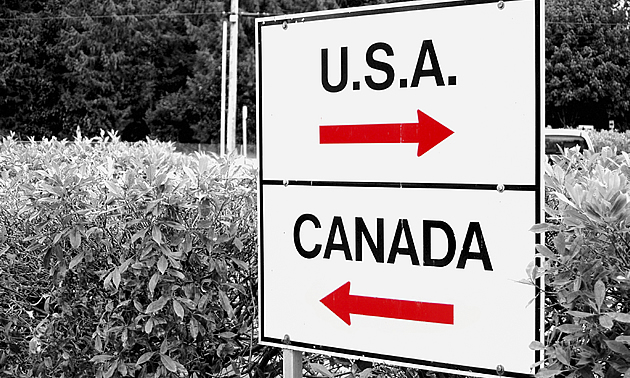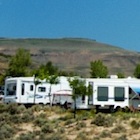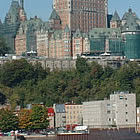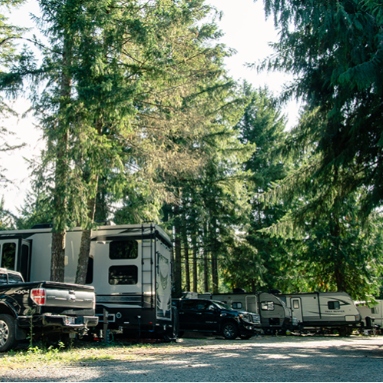RVing across the border
Regulations and considerations when travelling by RV into the States

We walk alike, we talk alike, we look alike, we have mostly the same stores and products; and sometimes we forget that the United States is a foreign country. But it is a foreign country and there are regulations we need to be aware of and precautions we need to take when travelling in the USA.
1. Who are you?
The first thing you are going to encounter crossing the border is the need for valid official identification—your provincial drivers licence is not enough anymore. The US Border Service accepts valid passports; NEXUS; or FAST identification (for more information see this website).
Because of tighter Homeland Security restrictions, you may be asked to prove your residency: a rent receipt or utility bill receipt should suffice. We travel with copies of our Property Tax Assessment as well as our passports.
Remember too, if your children or grandchildren are going to visit you, they need to have proper documentation to avoid any problems.
2. What you can and cannot take into the USA
The usual questions are, “Do you have any tobacco, alcohol, firearms or whatever food that is on the no-entry list this week?” and “How much money are you taking with you?”
You are allowed to take up to $10,000 and restricted foods changes frequently. At the time of writing, they would not allow goat or lamb meat, citrus fruit, green onions, potatoes or other produce that was not commercially grown in Canada or the USA. The suggestion was to make sure you leave the little stickers on the produce. Contact the border crossing if you want more information.
3. How long are you staying in the USA?
The USA allows Canadians to stay in their country as visitors for 182 days, and that is calculated on an annual basis from January 1st to December 31st. However, everyone who is in the US for more than 182 days over a three-year period is expected to fill out the Closer Connection form and send it into the IRS before June 15th of the following year. This form 8840 is available on the IRS website. (URL for IRS Conditions for a Closer Connection to a Foreign Country)
Calculation Formula:
- Total number of days in the US in the current calendar year
- 1/3 of the total days in the US for the previous year
- 1/6 of the total days in the US for the third year
If this calculation is more than 182 days, the IRS can approach you for being a US citizen for tax reasons.
4. Emergency Medical Travel Insurance
Emergency Medical Travel Insurance is always a good idea when you are travelling anywhere but especially in the USA. While some medical treatment expenses outside your province can be claimed back, the reimbursement seldom lives up to the expenditure. Worst of all, you pay out of pocket until you can make the claim. Medical treatment in the USA is notoriously costly.
If you are under 55 with no pre-existing medical condition, insurance can be reasonable. Unfortunately, as you get older or have more health issues, the premiums become steeper and steeper. Still, it’s worth it—one incident could cost tens of thousands of dollars, not to mention the worry as well as the task of getting yourself and your property home.
5. Are you on any medications?
Be sure to take enough with you to cover your time away and take copies of your prescriptions just in case. The pharmacies will not fill an out-of-state prescription but they will direct you to an MD who can authorize the prescription.
If you are going to be away for over three months, check with your Provincial Health Care Ministry or agency to ensure your eligibility for coverage when you get back. I do know that Alberta Health Services will cover prescriptions for up to 200 days with no additional documentation.
6. Mobile and Internet service
Check with your service provider to make sure you have the right coverage—cross-border roaming charges can be outrageous. We use a temporary phone in the States. Cards for the phones are inexpensive and easily available.
The Internet has become more and more accessible. You can get a Wi-Fi connection at most libraries, almost every fast food outlet and most RV parks. For convenience and privacy, we invested in an Air Card and pay-as-you-go service through an American provider.
We have been snowbirding in our RV for over ten years now. We have had a good time and have not experienced any overwhelming problems. We know we are in a different country, we respect the differences and celebrate the similarities.








